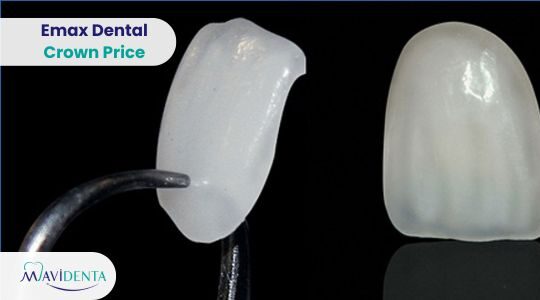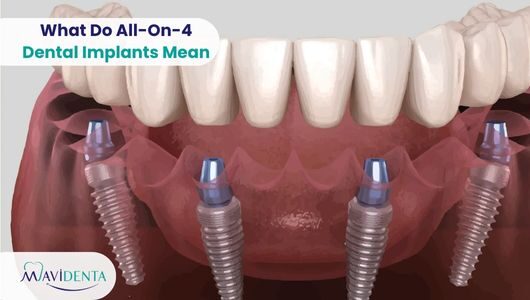Dental implant surgery is one of the most common operations among patients and one of the best solutions for everyone, so many patients come annually to have this operation. Despite the benefits and features, there are some risks that some patients suffer from later, such as dental implant feels too big.
In this case, the patient feels discomfort, accompanied by swelling and the inability to swallow or chew food well. Therefore, in our article, we will learn about ways to recover if the dental implant feels too big.
Normal Post-Implant Sensations
Despite the tremendous and continuous progress in the capabilities and techniques used in dental implants, it is still considered a surgical operation and all the specifications of the surgical procedure apply to it. As with any surgical procedure, we always expect common surgical complications to occur, such as:
- Bleeding occurs after dental implants.
- Swelling occurs after dental implantation.
- Some varying pains after dental implants.
- The patient feels a headache.
- Feeling severe pain after the transplant, especially when drinking hot or cold drinks.
- The possibility of suffering from a severe drop in blood pressure, and the reason is that some individuals are allergic to medical anesthesia.
- It is not recommended for people who suffer from blood clotting, due to the possibility of bleeding.
But all of these complications are simple to moderate complications and only last for two days after the dental implant procedure, if they occur, and they are easy to control with drug treatment.
The more complicated the implantation process becomes, the greater the expectation that complications will occur.
For example, the pain resulting from a tooth implant is different from the pain resulting from a tooth implant with a or dental implant feels too big. The more skill and training the surgeon has, the fewer the complications.
Identifying the Feeling of an Oversized Implant

The feeling of dental implant feels too big is one of the most annoying feelings after dental implants. It is worth noting that this is considered a very strong indicator of dental implant failure, so please contact the doctor immediately in this case, as this feeling can be described as the implants moving from their place while talking or eating.
Causes of a Dental Implant Feeling Too Big
Dental implants measurements must be appropriate in their various dimensions, i.e. in terms of height and width as well. Short and long dental implants cause many problems such as dental implant feels too big, which we will all talk about below.
In terms of width, dental implants must have an appropriate distance from adjacent teeth so that the space between each tooth can be cleaned using dental floss.
If the dental implant is sized so that it adheres to the adjacent teeth, food will get stuck between the teeth, and this residue may not be removed even by using very fine dental floss either. Food remaining in these spaces, in addition to causing an unpleasant sensation, gradually leads to tooth decay and bad odor in the mouth.
Disadvantages of dental implants length
One of the most important disadvantages of measuring implants is that dental implant feels too big.
In the first days after the crown is installed, you may feel a feeling that the crown is large. This feeling may be normal.
But if this feeling does not go away after several days and you still feel that the dental implant that you installed are still too long, then you should see a dentist to find a solution to this problem.
If the size of the dental implant is large, the processes of eating and chewing will also be exposed to a problem, and the gum tissue will be exposed to severe, irreversible damage. Most of the time, due to the length of the dental crown; The patient may also feel a toothache.
Disadvantages of short dental veneers
Short dental implants are also one of the problems associated with the use of dental crowns. During chewing, the teeth fit together, so when the length of the dental crowns is short, this leads to them not fitting the teeth. Which leads to greater pressure on other teeth.
This causes pressure on the teeth while chewing. This pressure is distributed unevenly, which leads to greater pressure on other teeth. Therefore, if the dental crown is short or long, you must consult a dentist quickly and solve this problem.
When to Consult Your Dentist
If you feel dental implant feels too big after dental implants, see a doctor immediately in this case, as you may be exposed to some other complications over time, such as swelling of the gums or the inability to swallow and chew food, so please see the doctor immediately and undergo an examination to choose The appropriate way to dispose of or treat the implant.
Diagnosis and Evaluation
In the beginning, the patient shows some symptoms that suggest problems with dental implant feels too big. The most prominent of these signs are inflammation around the implanted tooth and swelling, as well as feeling severe pain in the area where the dental implants were placed.
In any case, the most appropriate way to treat the dental implant feels too big is to get rid of them, so we recommend We always choose the best practices to perform the dental implant procedure and ensure the competence and level of the doctor responsible for the evaluation and treatment, and this is what we offer to our patients in Mavidenta.
Options for Correction
If your implants have become loose in any way and you don’t know what to do about it, we can help.
One way to fix dental implant feels too big is to remove all components of the implants immediately because if you wait and watch, the surrounding tissue will eventually deteriorate.
However, if only the screw is loose, you only need to replace or tighten the screw. There may also be a possibility that the implanted crown will come out. If this happens, all that is required is to reattach the dental crown.
Long-Term Solutions: dental implant 10 years after extraction
Patient Experiences and Testimonials
Lack of care and maintenance for dental implants can lead to an oral health problem known as dental implant feels too big. It is an infectious disease that affects the tissue surrounding the dental implant and the bone where it is fused, causing loss of the implant itself.
To prevent peri-implantitis, the best advice is proper plaque control to avoid gum disease. In addition, these are other guidelines for dental implant care and maintenance:
1-Daily oral hygiene
It is common in some patients that after dental implant placement, the gums tend to recede slightly, leaving a small concavity between the crown and the gum tissue. That is why it is very important to perform oral hygiene after each meal, avoiding the accumulation of food debris and the formation of biofilms.
In addition to using a soft-bristled toothbrush, there are specific toothpastes for post-intervention care on the gums. GingiKIN B 5 / KIN B5 toothpaste strengthens the gums and controls dental biofilms, preventing cavities and gum disease.
2-Use oral irrigation
A dental irrigator is a very useful cleaning device for removing food debris in difficult areas. It expels a jet of pressurized water, removing bacterial plaque and dirt between the implant crown and the gums.
3-Use nearby brushes
Along with brushing and irrigating teeth, the use of proximal brushes is very useful to complete the oral hygiene of those who wear prostheses. Ideal for the spaces between teeth, it can also be replaced with dental floss according to each patient’s needs.
4-Mouthwashes
For those patients who have undergone the intervention of placing dental implants, there are specific mouthwashes that help restore gum tissue.
GingiKIN B 5 / KIN B 5 mouthwash with cetylpyridinium chloride and provitamin B 5 among its main ingredients, strengthens and softens the gums. Helps control biofilm buildup in teeth and gums, preventing tooth decay.
5-Frequent dental examinations
Finally, it is worth noting the importance of conducting corresponding reviews with the dentist every 6 months during the first years, then spacing them annually if no problem is detected.
If you have any questions about the care and maintenance of dental implants, it is best to schedule an appointment with a specialist to help you protect your overall oral health.
6-Prosthetic limb protection
At the same time, avoid procedures that may harm the health and safety of your teeth. An example of this is gnawing on hard objects, or using a toothpick to remove food debris.
Patients who suffer from bruxism, or teeth grinding, can find significant improvement and protection for their natural teeth and implants with offloading splints.
Best Dental Implant Clinic In Istanbul
Why does my dental implant feels too big?

Dental implant pain can be divided into the following:
1-Dental implant pain during the procedure
Dental implants are a process through which the doctor implants permanent teeth. Dental implants differ from removable dentures, as the implanted teeth are fixed. When implanting teeth, the doctor makes an incision in the gums first, and you may realize that the pain associated with this is unbearable.
The pain of dental implants when the gums are cut may be truly unbearable, but you will not feel anything due to local anesthesia, as the doctor completes the implantation process by drilling the jawbone, but all of this is also under local anesthesia.
So we conclude that dental implant pain does not exist during the operation. There is only pain associated with the pressure resulting from the drilling and implantation process, but there is no real pain, as a result of the use of local anesthesia.
2-Post-operative dental implant pain
Many people fear the pain of dental implants that follow the procedure, and the severity and duration of dental implant pain after the operation varies. In paragraph, we will show you a schedule of days with the extent of pain after the operation:
A-Dental implant pain after 24 hours
The effect of the anesthetic will last for a short time after the operation, and in all cases the doctor will prescribe painkillers because he is aware that mild pain will appear at the site of the dental implant two to four hours after the anesthetic has finished.
If you notice the presence of blood, there is no need to worry, as dental implant pain is often accompanied by the presence of blood. Just sterilize it with a piece of gauze.
attachment implant pain 1-3 days after the operation
Gradual recovery begins at this stage, but you must be careful and pay attention to the quality of food, as you can eat pasta and fish, and as a type of recovery, swelling may occur in the transplant area with slight pain.
Using hot or cold compresses is a good way to relieve dental implant pain at this stage.
C-Dental implant pain after 3-7 days
At this stage, you can return to normal life without exaggerating the activities you do. You must also continue to be careful about the quality of the food you eat, as eating soft, not hard dishes helps avoid pain.
At this stage, everything begins to disappear, as the effects of swelling disappear, and the pain disappears or decreases significantly.
The disappearance of dental implant pain at this stage depends on how difficult the operation is and the number of teeth implanted.
D-Dental implant pain after 7-14 days
If there is pain, swelling, or bleeding at this stage, you must consult a doctor immediately, as this stage is the recovery stage, and it is necessary to pay attention to dental implant feels too big and the type of food introduced and be careful not to exhaust yourself with strenuous exercises.
The recovery rate from dental implant pain is usually 10 days, i.e. between 7 and 14 days. After that, if the pain continues, the doctor must be consulted. As is customary, the doctor requests a visit more than two weeks after the surgery to ensure the safety and health of the patient.
Also check: Dental Centre Turkey Payment Plan
How do you compress a dental implant?
In addition to dental implant feels too big, having the tooth at an appropriate depth is important for its stability and in order to achieve a position in which the crown of the tooth meets the gums similar to how natural teeth meet the gums, and that the gums meet the implanted tooth correctly is very important for the success of the implantation process.
The gums provide the transitional stage between the metal base of the tooth and the natural outer shape of the implanted tooth crown. If the implanted tooth is not implanted to a good depth, the gums will recede from the tooth root, exposing it and allowing food debris and waste to accumulate around it and above the mineral root, causing the implant to fail.
At the same time, the depth allowed to insert the tooth root is limited due to the presence of the nerve, and therefore the doctor must take an average depth. Between the nerve and the appropriate position to provide sufficient distance for the tooth and to meet it well with the gums.
What if my crown feels huge?
One of the harmful effects of dental crowns is the dental implant feels too big, as the material that the doctor uses to cover the teeth and stick the crown in place can fade and disappear, causing this loosening.
A loose crown leads to bacteria gathering and tooth decay. Therefore, you should consult a doctor immediately if you feel this matter.
What to do if dental crown is too big?
You must act quickly when symptoms of dental implant failure appear such as dental implant feels too big as a result of an error. When it is possible to save the implant, you must treat the infection, if any, or correct the position of the tooth in the event of incorrect placement, or treat the gums when the gums recede, and work to stabilize the tooth in the event of looseness.
Some cases of tooth failure require the complete removal of the tooth. In this case, it is extracted under local anesthesia in a simple operation. After preparing the bone and gums well, we can work on re-implanting it again. If the bone is healthy, there is no need for bone support before the new implant as well.
Who Is Responsible For Dental Implant Failure?
Conclusion
Despite the overwhelming success achieved by dental implants, if this medical procedure is performed by an incompetent doctor, it may cause disasters, including the dental implant feels too big. Therefore, we always recommend following the doctor’s instructions for your safety. Please also contact the doctor immediately if you feel Pain or swelling that lasts for more than fifteen days.
FAQ
Do implants get softer over time?
Over time, the patient will get used to the feel of the teeth that have been implanted, so there is no need to worry.
How long until implants feel normal?
There are several factors that affect the speed of recovery and the speed of the patient’s response, and it is worth noting that the treating physician has a major role in helping the patient recover before dental implants.
Do implants feel hard at first?
The patient may feel discomfort at first, and this is normal, but with the passage of time everything returns to normal and the patient gets used to the feeling of newly implanted teeth.










